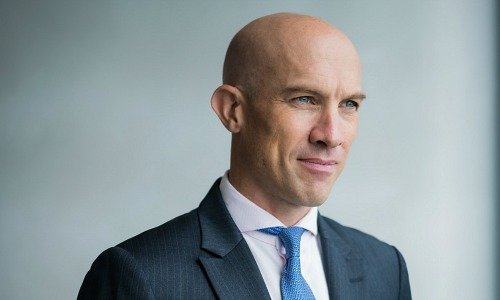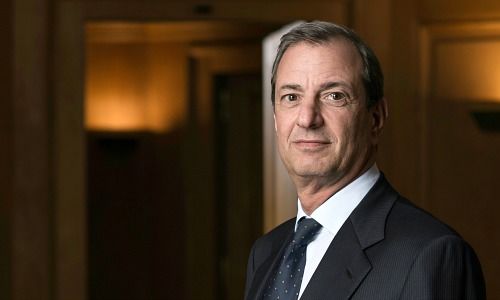Guy de Picciotto: «You Can Still Earn Decent Money»
Union Bancaire Privée is profitable in Asia but hasn't reached critical mass. «The level is probably around the point at which it becomes too big to be managed properly and according to our culture and values», says Guy de Picciotto, co-owner and CEO of the bank, in an exclusive interview with finews.asia.
Guy de Picciotto, since taking over Coutts International, Union Bancaire Privée (UBP) has a strong presence in Asia. Is it important to be a Swiss bank there?
Without a doubt, Swissness is important, more important even than in Europe or Latin America. Do we capitalize on it? No.
Why not?
UBP has never been particularly Swiss. When my father – Edgar de Picciotto – founded the Bank in 1969, the big Swiss banking names already existed. In order to stand out, he started to invest in hedge funds very early on making us a pioneer on the investment side.
«My father often told me that story, so it’s probably true»
Later on, we began to take over foreign financial institutions, which made the bank definitely more international than others. Today that’s what almost everyone is doing.
Is the story true that in the bank’s early days, your father would leave the lights on in the offices day and night to give the impression of being busy?
He often told me that story, so it’s probably true (laughs). But seriously, in comparison with other private banks in Geneva, we were always somewhat different.
Are you going to celebrate UBP’s 50th anniversary?
That’s a tricky question. No. In fact, while it’s true that our father Edgar de Picciotto founded Compagnie de Banque et d’Investissements (CBI) in 1969, UBP’s roots reach as far back as 1956 when TDB American Express Bank was born, a firm which merged into CBI in 1990 to become UBP.
«Well, whoever said we do things like everyone else?»
So that's another distinguishing feature of our bank: it has several birthdays! And some will remember that we already celebrated it in 2006. But we celebrated again internally in June this year. Well, whoever said we do things like everyone else? (laughs)
What would be the critical mass for UBP in Asia?
There’s no exact figure. We are profitable in Asia, but we haven’t yet reached critical mass. The level is probably around the point at which it becomes too big to be managed properly and according to our culture and values.
What’s your growth rate if you just grow organically in Asia?

Michael Blake (UBP's Asia Head, pictured above): Over the last three years, we’ve grown by 45 percent. To my mind, that’s a healthy rate of growth that we want to sustain, but this has to happen in a controlled way.
«In other words, you can’t prove it, or at least it’s not what we’re seeing»
We don’t want to take on thirty new relationship managers in one year, only to cut twenty of them twelve months later. If we keep up the current momentum, so about ten to fifteen new RMs per year, that’s about right.
What effects are the pro-democracy demonstrations in Hong Kong having on your business?
Let’s put it this way: clients are concerned, but at the moment they’re waiting to see how the whole situation develops.
In financial circles, there’s talk that the wealthy are relocating their assets from Hong Kong to Singapore. Is that true?
The problem with that assertion is that it’s complete hearsay. In other words, you can’t prove it, or at least it’s not what we’re seeing.
Guy de Picciotto: In all honesty, I doubt this is happening, although there might be banks that are working on it.
Do you now go to Hong Kong more often to monitor the tense situation there?
Blake: No. Generally, I’m in Hong Kong for about twice a month. In terms of our day-to-day business, there has been no major change.
«We are seeing strong demand for tailored asset management mandates»
There remain a lot of business opportunities across the whole Greater China region, including in Hong Kong.
Where is UBP seeing the strongest growth in Asia?
Definitely in China, Taiwan, and Hong Kong. Business with non-resident Indian – or NRI – clients is also attractive, and the Singapore and Thai markets are showing significant growth.
How do you convince clients to opt for UBP rather than for one of the myriad other banks?
In Asia, we are seeing strong demand for tailored asset management mandates, especially from clients with assets of at least $10 million. At UBP, private clients can benefit from the solutions offered to institutional clients and this makes a difference.
«Hardly anybody knows how to pronounce my surname»
On top of that, we’ve got a great deal of know-how in advising family offices, as well as advising wealthy families, who want to set up a family office. This is an expertise we’ve recently launched in Asia.
The big private banks in Geneva are keen to stress that they’ve been family-owned for hundreds of years. UBP is also family-owned, but it doesn’t put this fact center stage. Why not?
The vast majority of wealthy clients in Asia aren’t at all familiar with Swiss private bank brands and history. Besides, hardly anybody knows how to pronounce my surname! (laughs)
Being family-owned is an advantage, but what really matters is having relationship managers who know their clients, understand their needs, and deliver.
You mentioned that you hunt whole teams from your competition. Do these private bankers also manage to convince their clients to change banks?
Blake: That really depends on the particular client relationship – how long it’s existed and how close it is.
«It sounds cynical, but I often say that in banking, you often grow because of others’ mistakes»
De Picciotto: Some teams that we’ve hired come over because they no longer feel comfortable elsewhere due to internal restructuring. Generally, their clients then come with them.
It sounds cynical, but I often say that in banking, you often grow because of others’ mistakes. That’s why we have to make fewer mistakes than others. It sounds worrying, but it’s true.
How are hedge funds and gold looking?
We’ve increased our allocation to hedge funds to 7 percent in our portfolios, as, in recent years, this asset class wasn’t particularly well-regarded by investors.
Gold is a recurrent key component of our investment strategy. That was the case in the 1970s as well as during the 2008/9 financial crisis. At the moment, we’re upping our gold allocation, as we’ve got less and less trust in currencies.
Are cryptocurrencies the alternative investment of the future?
Our clients have expressed little interest in cryptocurrencies. In contrast, however, I think that Facebook’s cryptocurrency, Libra, is an interesting project and one that could be a real success.
«If you work hard, you can still earn decent money»
In comparison with bitcoin, Libra will be more stable as there’s an oversight committee and Facebook users offer a massive potential client base for this virtual currency.
In contrast, in the near future, I see an «e-renminbi» controlled by the Chinese. That could mean that sooner or later – perhaps in twenty years – the U.S. dollar will be replaced. We have developed specific know-how on the compliance side in order to handle all requests crypto-related, although that said, we’re not offering any crypto products.
What keeps you motivated to stay in banking?
If we’re being honest, banking is still a «good» business. If you work hard, you can still earn decent money. Margins have been massively slimmed down, but, in comparison with other industries, they’re still comfortable, and the global level of available assets continues to grow unchecked.
You’re 59 years old. Have you already appointed your successors at the bank?
Not yet but involving the next generation keeps me busy! My nephew (my brother’s elder son) decided to join the bank in May 2018 after practicing internal medicine and oncology for seven years. He’s currently working on the private equity side and he’ll soon be heading to Hong Kong for one or two years to gain experience.
«When they reach 30, I hope they’ll join UBP.»
My elder son, who’s 28, worked for a large consultancy firm and now wants to found a start-up in the U.K. that offers the chance to invest with small amounts of cash. My younger son, who is 26, recently left a well-known U.K. fintech and will be starting with a Zug-based private equity firm at the beginning of 2020. When they reach 30, I hope they’ll join UBP.
Guy de Picciotto, 59, is the CEO of Union Bancaire Priveée (UBP). After completing his studies at Webster University, he worked as a management consultant for three years. From 1986 to 1988, he completed a banking education at various institutions such as UBS, Morgan Stanley, Bear Stearns, and Sanyo Securities. In 1988, he joined the Compagnie de Banque et d'Investissements (CBI), founded by his father Edgar de Picciotto in 1969 and later renamed Union Bancaire Privée.
Michael «Mike» Blake, 44, has been responsible for UBP's Asian business in Singapore for almost four years. Prior to that, he worked for Coutts International for five years, first as general manager for the Asian region in Hong Kong, then as CEO of Coutts International until the long-established institution was integrated into UBP. Blake started his career at UBS in Hong Kong, as head of the Asia-Pacific region.




























